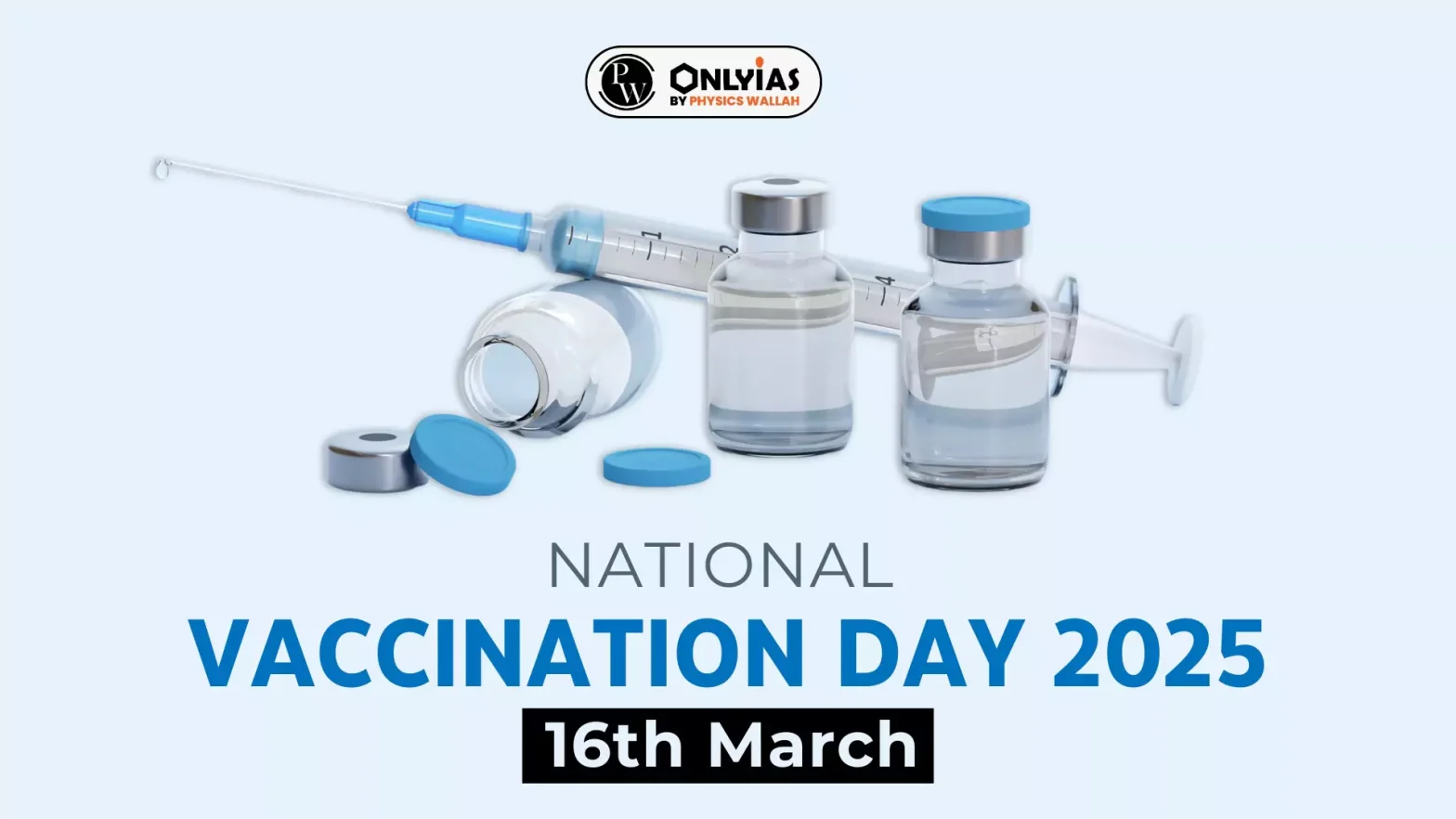National Vaccination Day is observed on March 16, every year, to remind the importance of immunization for public health. Learn more about National Vaccination Day 2025 here.

National Vaccination Day, observed annually on March 16th in India. It serves as a pivotal reminder of the significance of immunization in safeguarding public health. Initiated in 1995 to commemorate the first administration of the oral polio vaccine in the country, this day underscores the relentless efforts to eradicate vaccine-preventable diseases.
As we approach National Vaccination Day 2025, it is imperative to reflect on the milestones achieved, understand the current landscape of immunization, and recognize the challenges that lie ahead.
Each year, National Vaccination Day is celebrated with a unique theme that resonates with the current public health priorities. As of now, the theme for 2025 has not been officially announced. However, it is anticipated that the focus will be on strengthening immunization coverage, addressing vaccine hesitancy, and integrating advanced technologies to enhance vaccine delivery systems.
National Vaccination Day holds profound importance in India’s public health narrative. It not only commemorates the inception of the Pulse Polio Immunization Programme but also emphasizes the continuous commitment to immunization as a vital tool in disease prevention. This day serves multiple purposes:
By observing National Vaccination Day, India reiterates its dedication to eliminating diseases that can be prevented through vaccines, thereby ensuring a healthier future for its citizens.
The genesis of National Vaccination Day dates back to March 16, 1995, marking a monumental step in India’s fight against polio. On this day, the first dose of the oral polio vaccine was administered under the Pulse Polio Immunization Programme, a massive nationwide initiative aimed at eradicating polio from the country.
The success of this program culminated in India being declared polio-free by the World Health Organization in 2014, a testament to the country’s unwavering commitment to public health. This achievement paved the way for subsequent immunization campaigns targeting other vaccine-preventable diseases, reinforcing the significance of National Vaccination Day in India’s healthcare landscape.
Launched in 1985, the Universal Immunization Programme (UIP) stands as one of India’s largest public health initiatives. The primary objective of UIP is to provide free vaccines against life-threatening diseases to all pregnant women and children up to the age of two years. Each year, the program aims to cover approximately 2.67 crore newborns and 2.9 crore pregnant women, ensuring comprehensive immunization coverage. The diseases covered under UIP include:
The UIP has been instrumental in reducing child mortality rates and controlling the spread of infectious diseases across the nation.
To further accelerate immunization coverage, the Government of India launched Mission Indradhanush in 2014, followed by Intensified Mission Indradhanush (IMI) in 2017. These initiatives focus on vaccinating pregnant women, unvaccinated, and partially vaccinated children, especially in areas with low immunization rates.
| Key Details of Intensified Mission Indradhanush | |
| Aspect | Details |
| Launch Year | 2017 |
| Objective | To achieve full immunization coverage for children and pregnant women in high-risk areas |
| Target Group | Pregnant women, unvaccinated and partially vaccinated children |
| IMI 5.0 (2023) Target | 34 lakh children and 6 lakh pregnant women |
| Key Focus Areas | Rural and underserved regions, urban slums, tribal communities |
| Impact | Increased immunization rates, reduced mortality, and better healthcare access |
Vaccination plays a pivotal role in public health by preventing the spread of infectious diseases, reducing mortality rates, and promoting overall societal well-being.
Ready to boost your UPSC 2025 preparation? Join PW’s UPSC online courses today!
The official theme of National Vaccination Day 2025 has not been announced yet.
Mission Indradhanush is a vaccination initiative launched by the Government of India in 2014 to achieve full immunization for children and pregnant women. It was further strengthened by Intensified Mission Indradhanush (IMI) in 2017 to target areas with low immunization rates.
A newborn requires multiple vaccines to protect against life-threatening diseases. The recommended vaccines in India include BCG (for tuberculosis), OPV (oral polio vaccine), Hepatitis B, DPT (diphtheria, pertussis, tetanus), Rotavirus, and Pneumococcal vaccines, among others.
National Vaccination Day is observed every year on March 16.
Vaccination helps build herd immunity, where a large portion of the population becomes immune to a disease, reducing its spread and protecting those who cannot be vaccinated due to medical reasons.
<div class="new-fform">
</div>